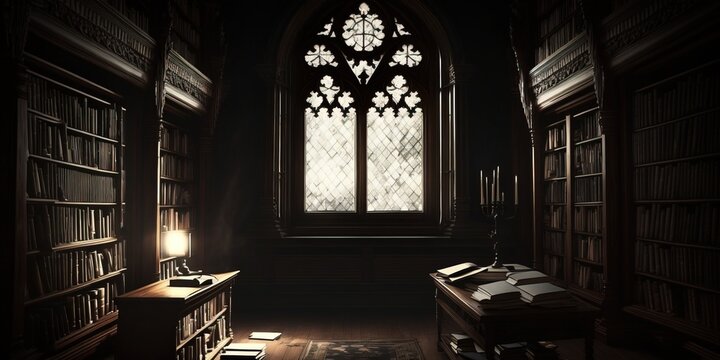
FAQ About Gothic Literature
Gothic Literature
2 years ago | gizem
What is the significance of darkness and shadows in the genre?
Darkness and shadows hold great significance in the Gothic genre, playing a pivotal role in shaping the atmosphere, themes, and psychological underpinnings of Gothic literature. Here's an exploration of their significance:
- Atmosphere of Mystery and Fear: Darkness and shadows create an immediate and pervasive sense of mystery and fear. They shroud the environment in uncertainty, making the familiar seem unfamiliar and the ordinary appear extraordinary.
- Evasion and Concealment: The use of darkness and shadows allows characters and events to evade detection and remain concealed. This contributes to the sense of secrecy and hidden agendas common in Gothic tales.
- Symbolism of the Unknown: Darkness often symbolizes the unknown, the uncharted, and the subconscious. In Gothic literature, characters often grapple with their inner demons and the hidden aspects of their psyche, and darkness serves as a reflection of these internal struggles.
- Psychological Turmoil: Darkness and shadows frequently mirror the psychological turmoil of characters. They represent the darker aspects of the human mind, such as fear, guilt, and madness, which are central themes in Gothic literature.
- Conflict Between Good and Evil: Gothic stories often depict a struggle between good and evil, and darkness is a symbolic representation of evil forces. Characters must confront these dark forces, both within themselves and in the external world.
- Isolation and Alienation: Darkness can create a sense of isolation and alienation. Characters often find themselves alone in the dark, cut off from the safety and warmth of human companionship. This isolation intensifies their vulnerability and unease.
- Supernatural Encounters: Darkness and shadows are the natural habitat of supernatural beings and creatures. They provide a veil for ghosts, vampires, and other supernatural entities to make their appearances, heightening the sense of the uncanny.
- Foreshadowing and Omens: In many Gothic tales, darkness and shadows are used to foreshadow impending danger or tragedy. They serve as omens, hinting at the sinister events that will unfold.
- Moral and Ethical Ambiguity: The interplay of light and darkness often reflects moral and ethical ambiguity in the Gothic genre. Characters are frequently faced with difficult choices and ethical dilemmas, and the use of darkness underscores the blurred boundaries between right and wrong.
- The Sublime: Darkness can evoke the sublime, a feeling of awe mixed with fear. This sense of the sublime is integral to the emotional impact of Gothic literature, heightening the reader's sense of wonder and dread.
